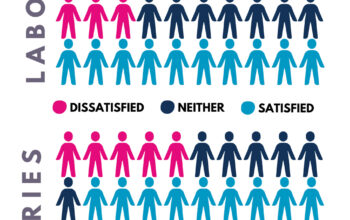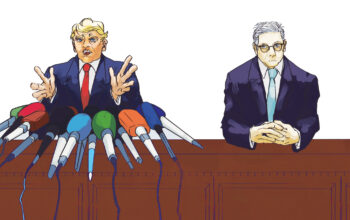Niger: After the recent coup in Niger, Amnesty International has reported an ongoing human rights crisis. The nation’s president, Mohamed Bazoum, was seeking to replace military officer Abdourhamane Tchiani as the head of the presidential guard to reform the national security system, resulting in a coup as army officers attempted to retain their military and political authority. Citizens have since been protesting the restrictions on freedoms of expression, peaceful assembly and association that have been repressed by the military.
According to 2022 Country Reports on Human Rights Practices, the government of Niger has been participating in arbitrary killings and detention, severe media limitations and prosecution of journalists, and denial of investigation on gender-based violence.
Since its independence in 1960, Niger has had four successful coups and many attempted ones, including one two days before Bazoum took office, causing protest from his supporters. Additionally, economic issues have amplified since the crisis, due to the economy in Niger depending on agriculture.
Members of the presidential guard have unjustly detained, without trial, former President Bazoum, and at least
30 officials from the ousted government and people close to the deposed president, as well as several journalists. This lack of trial is in violation of fundamental individual freedoms and international law. The press has become increasingly monitored and there have been terrorist organization attempts at attacking journalists, which have restricted freedom.
Mahamadou Issoufou, a Nigerian politician who served as president of Niger from 2011 to 2021 has mentioned he “was accused of working under foreign influence” after reporting on the security status of the Tillaberi Region, in western Niger and for not chastising the coup led by Tiani.
The instability in the nation’s government is also reflected in Niger’s economic landscape. According to the United Nations, workers in Niger earn less than $1.90/day, and are unable to meet their daily food and nutrition needs. To solve these issues, Niger has a program to regenerate ecosystems and grow domestic energy production to help agriculture. Part of this program is the installation of the Kandadji Dam and hydropower plant on the Niger River.
Thailand: After seizing power in a 2014 coup, the Thai military directly appointed 250 people to the upper house (senate)of the Thai legislature in what seemed like an attempt to hinder meaningful political reform, according to Qatari news channel Al Jazeera.
In August 2024, following Thailand’s 2023 election, its senators blocked the progressive Move Forward Party (MFP), a socially democratic political party, from taking part in the government, for allegedly violating the constitution. This was despite the fact that the party had won the most seats in parliament and the largest share of the vote.
The Constitutional Court ruled on Wednesday August 7, 2024 that the Senate’s interference with the MFP showed intent to split the monarchy from the Thai nation, which is highly dangerous to the security of the state.” The monarchy plays the important role of unifying the Thai nation and the king is head of the armed forces.
The court also called it an attempt to “overthrow the democratic regime of government with the king as a head of state”. The court’s ruling could set a precedent for any future review of the royal defamation law, which carries penalties of up to 15 years in jail. Additionally, voting prerequisites and candidate requirements severely limit who has political power in the nation. Candidates need to be over 40 years old,
have ten years of experience in their field, and not be currently affiliated with a political party.
Additionally, they must pay a fee of 2,500 baht (about $68) to register. Dani Wilcox ’25 has seen the impacts of these restrictions firsthand. “Most of my family is in Thailand… I spent a solid chunk of my life there.” He says the methods of election make it especially hard for his family members in rural Thailand to vote. “Their election center is at least 20 miles away.”
Wilcox also believes the voting restrictions on young people in the nation are unreasonable. “I think voting should be open to younger crowds. I think the government has too much control, since it’s backed by the military, and they’re really controlling.” The political state of the nation has also made it harder for him to renew his citizenship. “I automatically sign up for conscription if I do. I don’t want to go into the military.”
However, despite how big these issues are in Thailand, and their impact on Roosevelt students, Wilcox has found them to be heavily underdiscussed. “I definitely feel that more topics revolving around politics around the world should be mentioned. Not just when a war is happening, but anything in regards to political instability or certain institutions that aren’t being changed.” He states that people are often hesitant to speak up about these issues, because they are concerned their viewpoints will be controversial.
Follow The Roosevelt News on Instagram @therhsnews. Questions, comments, or concerns? Contact the Editorial Board at therooseveltnews@gmail.com.
Your voice matters. Share your thoughts and experiences in the comment box below.


